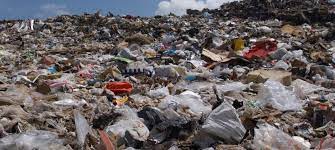Integrated waste management provides a new approach to solid waste. It seeks to keep products, the materials and energy embodied in their manufacture, and the by-products of their manufacture, in the productive part of the economy and out of the “waste” stream as long as possible, and to wring as much economic value out of them as possible before giving up on them as “waste.” When this is done, the following happens:
Local and regional economies benefit by the continued exchange value of the reclaimed materials and products and the jobs created in reprocessing and reselling them.
Private businesses often find these materials a cheaper source of raw materials than virgin sources, especially when virgin materials are becoming scarce, more difficult to access, under more stringent regulatory controls, or must be shipped from far away.
It often takes less energy to reprocess or re-manufacture these reclaimed materials than raw materials, because of the energy already embodied in their original manufacture. This increases the value of these materials to industry, since energy savings in manufacturing can be added to the acquisition savings for a more competitive “bottom line.”
National and global resource natural depletion is reduced, contributing to a more sustainable long-term economy.
Read Also : Integrated Waste Management (IWM): The Case of the Corrugated Box
Local governments benefit through reduced cost of ultimate “disposal” of the materials because many would-be “waste” materials and products are diverted from their landfills for an extended period of time.

Pollution from landfills is reduced because many toxic or otherwise polluting materials are diverted from the landfills, and because the overall volume of land filled material is reduced.
Another valuable feature of IWM is that it applies to all solid waste situations, from the largest city or industry to commercial and office waste streams, right down to the individual household.
This means that its positive impact can be understood and enjoyed by the whole community, not just by solid waste managers and planners. It also means that the economic impact of IWM can be felt by all economic sectors in the community.

